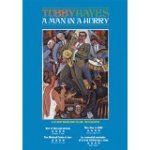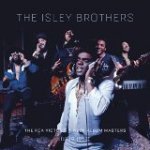It’s time to get the High Fives under way for 2015 and, in a break with tradition, I’m handing over the opening slot to one of our guests, Neil Sheasby, bass player and co-songwriter with one of The Riot Squad’s favourite bands, Stone Foundation. The band have had a great year with the release of their superb album “A Life Unlimited” (guest vocal from Graham Parker, no less), a Japanese tour and some high profile UK gigs. Neil’s observations on music are always interesting, so it’s a pleasure to let him have the first High Five this year.
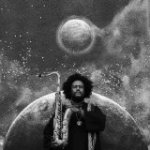 KAMASI WASHINGTON – “THE EPIC”
KAMASI WASHINGTON – “THE EPIC”
A record that pretty much defined my summer, for a few weeks I didn’t play much else. It is actually one of those albums that the more you listen to it, the more it will give you in return. It’s quite a sprawling, challenging recording set over three discs and clocking in at around three hours so it’s hard to digest all in one sitting but its depth, beauty and sheer ambition is unlike any other album I have heard in recent times. It could easily sit alongside the jazz heavyweights such as Coltrane’s output for impulse & Atlantic. Probably more accessible though. It has a timeless quality to it and an underlying spiritual vibe, funky too. I was lucky enough to catch his recent London gig and the playing was just on another level, astonishing stuff. Inspiring. He also led me to Kendrick Lamar’s “To Pimp a Butterfly” album (Kamasi plays on it) which is a great modern hip hop record again pushing & re-defining the boundaries of that particular genre.
I think 2015 has been a strong year for new releases and new music in general, it’s been encouraging.I’ve really enjoyed new albums from artists I hadn’t previously heard of like Ryley Walker whose “Primrose Green” album evokes traces of John Martyn & Tim Buckley; also the Julia Holter record is an interesting listen but I must admit the real surprises of the year have lain with the rejuvenation of established arists that have made really unexpected returns to former glories. New Order’s “Music Complete” album was a real eye opener, easily their best since 1989’s Technique. It’s a real triumph; Peter Hook free too! They should be proud of such a complete piece of work after all these years, it was a bona fide pleasant surprise to my ears, I’d about written them off.
Also this year there’s been great new albums from Joe Jackson (“Fast Forward) and Squeeze (“Cradle to the Grave”) that are fit to stand alongside any of their previous highlights.
This is a film about the relatively short life of British Jazz genius Tubby Hayes. It was made by two good friends of mine, Mark Baxter & Lee Cogswell and it’s a fascinating profile and made with much affection for its subject, narrated by Martin Freeman and it includes commentary & interviews with Sir Peter Blake, Spike Wells, Robert Elms, Simon Spillett and Ed Piller amongst others. I’ve known Mark for several years now and from day one he always had a burning desire to create a fitting documentary as a testament to Tubby’s life & music, he’s more than succeeded, I’m so pleased for him & Lee. It’s a fantastic little film and one that had me running for the records again.
Me and a mate recently attended the London launch party for its DVD release and on the train home it had us talking passionately about London & the Soho jazz scenes through the years, the clothes and the clubs, the DJ’s, bands, singers etc.That’s the tell-tale sign that “A Man in a Hurry” film had served its purpose all right.
Released earlier this year The RCA Victor and T-Neck albums all housed together in a 22 CD box set. It spans the Isleys career from 1959 up to 1983 taking in all those classic mid 70’s albums as well as a previously unreleased live album recorded at Bearsville Sound Studios. It’s an absolute beauty and really highlights the often overlooked genius of The Isley Brothers. Ronald, Ernie and Rudolph began with Doo-wop roots and evolved marvellously through classic Soul, Funk and even disco
It’s an incredible collection, once I get immersed in it, I’m in there for days on end. Brilliant stuff.
 YOU KNOW MY NAME: THE LOVERS, THE DREAMERS AND BOBBY SCOTT
YOU KNOW MY NAME: THE LOVERS, THE DREAMERS AND BOBBY SCOTT
A compelling & fascinating read by one of my favourite writers, Kevin Pearce. It’s actually the first book I have ever read from start to finish on my phone, it was my companion whilst on holiday this summer. Not many will be familiar with the name of Bobby Scott but it’s probably safe to say that you would have certainly heard his work.
Bobby composed, arranged, sang, produced and performed with countless artists including Marvin Gaye, Bobby Darin, Timi Yuro, Aretha Franklin, Chet Baker, Quincy Jones, Roland Kirk, Deodato, Stan Getz, Astrud Gilberto and a cast of thousands more. Bobby Scott songs include “A Taste of Honey”, recorded by the Beatles, and the epic “He ain’t Heavy, He’s my Brother” which The Hollies struck gold with (also check Donny Hathaway’s miraculous version) The only downer to reading this book is that it will seriously have you running back and forth to You Tube checking out song after song and of course in my case, being a hopeless music junkie, I ended up spending a small fortune on chasing up some of these spectacular sounds for my ever expanding collection.
I also read great autobiographies from Robert Wyatt, Bernard Sumner, Nile Rodgers, and somewhat refreshingly the Italian footballer Pirlo. I was a tad disappointed with the Grace Jones book, thought it would be more telling I think, then again Paul Morley was involved so no surprise I was underwhelmed.
I’m just about to begin Elvis Costello’s “Unfaithful music and Disappearing Ink”; looking forward to it…..
Every year there are hundreds of music-related books published, mainly biographies or autobiographies and they range from the very serious to the completely frivolous and from very well written to ‘see me after school’. These might not all have been published in 2014, but they were all on this year’s reading list. These books are all highly recommended if you’re interested at all in the background to the tunes you listen to or bands you go to watch, or even if you just want scurrilous anecdotes about sex and drugs. I’m making no attempt to rank these because they’re all so different, so, in no particular order:
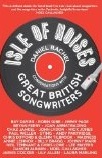 “Isle of Noises” – Daniel Rachel
“Isle of Noises” – Daniel Rachel
This is the serious one. It’s a series of interviews with famous (mostly) British songwriters which explores the ways in which songwriters work. It’s incredibly well researched (even some of the artists point that out) and obviously a labour of love for Daniel Rachel; if you have any interest at all in how songs are written, this is a great read. Don’t expect to discover the perfect songwriting method because you discover very early on that everybody writes differently. The writers being interviewed cover a wide range of styles ranging from the Sixties to the present day, so the scope of the project is enormous. Every time I meet someone who’s read it, we compare notes about which songwriter comes over as the most pretentious.
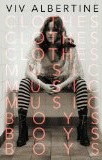 “Clothes, Clothes, Clothes, Music, Music, Music, Boys, Boys, Boys” – Viv Albertine
“Clothes, Clothes, Clothes, Music, Music, Music, Boys, Boys, Boys” – Viv Albertine
The stories from the punk era alone would make this worth reading (guitarist in The Slits, friend of Sid Vicious and girlfriend of Mick Jones) and there are plenty of tales of bad behaviour, but the latter part of the book tells us much more about Viv Albertine and her struggles to have a baby, to beat cancer, to survive a failing marriage and to take up guitar again and re-invent herself as a solo artist (her album “The Vermilion Border” was released in 2012). If you need confirmation of the entrenched sexist attitudes of the music and publishing businesses, you’ll find it here.
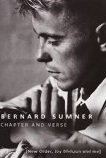 “Chapter and Verse” – Bernard Sumner
“Chapter and Verse” – Bernard Sumner
It’s difficult to see this as anything other than attempt to address some of the claims made by Peter Hook in his two books, but Bernard obviously feels hurt by some of the things that have been said and wants to let the public hear his (and New Order’s) version. The terse prose style is a stark contrast with Hooky’s “man-down-the-pub” delivery; there’s no grandstanding and a lot of self-deprecation in this memoir. Bernard seems to have a genuine affection for his ex-bandmate (and friend) and the over-riding impression the book leaves is of puzzlement at Hooky’s recent actions. The only jarring note is the inclusion of a transcript of a hypnosis experiment with Ian Curtis; I’m not sure why it happened in the first place, and I’m not sure why it was published. Other than that, a good read.
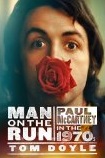 “Man on the Run – Paul McCartney in the 70s” – Tom Doyle
“Man on the Run – Paul McCartney in the 70s” – Tom Doyle
Tom Doyle has correctly identified a gap in the market for a book dealing with Paul McCartney’s immediate post-Beatles life (Peter Doggett’s “You Never Give me Your Money” focusses on the financial shenanigans of the period and the breakup of the relationship with John Lennon) and, perhaps surprisingly, he got Macca’s full co-operation with the project. Although there are some anecdotes which are excruciatingly embarrassing for the subject, there’s still a nagging little doubt that he’s manipulating the project at times. What the book clearly shows is that during that period, Paul McCartney’s decision-making was inconsistent and sometimes bizarre (trying to take a huge amount of dope into Japan, for example) and that he has a need to control situations and these two things, singly or combined, are the cause of most of the incidents covered. It’s a fascinating read, although it’s still not clear whether he’s man running away from or towards something.
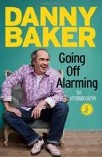 “Going off Alarming” – Danny Baker
“Going off Alarming” – Danny Baker
This is the second volume of Danny Baker’s memoirs and, unsurprisingly, the written Danny Baker sounds very much like the radio and TV Danny Baker. He uses the preface to explain why he won’t be writing a misery memoir and the introduction to explain the reason for the wonky chronology between the two books (after the first book was published, friends and family reminded him of stories he’d left out, including being shot up the arse in Bermondsey). It’s a romp through the crazy world of Danny Baker up to the point where he was sacked from “Pets Win Prizes” and is full of hilarious, mainly self-deprecatory anecdotes about his domestic and professional life. There are some genuine laugh-out-loud moments and it entertains throughout.
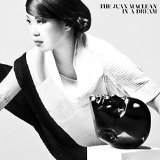 ‘Flights, in the night’ sings Nancy Whang conspiratorially during a quiet portal in the impressively detailed “A Place Called Space” that opens The Juan Maclean’s third album proper. Nothing sums up Whang and Maclean’s manifesto quite as perfectly as that line. Alluding to a retro glamour which no longer exists and a promise of a decadent and clandestine other world where the only light is artificial and strobing. This line, better still if it were morphed into a song title, could have been uttered on any number of Donna Summer’s tracks which featured on her most essential, electronic and nocturnal albums made between 1977- 1979 and produced by Giorgio Moroder. As if to hammer this point home Whang has simultaneously released an EP under her own name which is a collection of Casablanca records cover versions, it includes a faithful interpretation of Summer’s slippery and melancholic “Working the Midnight Shift”. “In A Dream” is a record that may wear its influences heavily on its sleeve but the cluster of magnificent songs and the vocal dynamics honed between the two prevents it from falling into a potentially deep hole of nostalgia and tribute.
‘Flights, in the night’ sings Nancy Whang conspiratorially during a quiet portal in the impressively detailed “A Place Called Space” that opens The Juan Maclean’s third album proper. Nothing sums up Whang and Maclean’s manifesto quite as perfectly as that line. Alluding to a retro glamour which no longer exists and a promise of a decadent and clandestine other world where the only light is artificial and strobing. This line, better still if it were morphed into a song title, could have been uttered on any number of Donna Summer’s tracks which featured on her most essential, electronic and nocturnal albums made between 1977- 1979 and produced by Giorgio Moroder. As if to hammer this point home Whang has simultaneously released an EP under her own name which is a collection of Casablanca records cover versions, it includes a faithful interpretation of Summer’s slippery and melancholic “Working the Midnight Shift”. “In A Dream” is a record that may wear its influences heavily on its sleeve but the cluster of magnificent songs and the vocal dynamics honed between the two prevents it from falling into a potentially deep hole of nostalgia and tribute.
If their 2005 debut album was an accurate record of the post-electro clash, nihilistic and disco-damaged DFA early days and the follow up and homage of sorts to British synth pop and handbag house then this record is where the pair decide to reach back even further. There has always been a vivid and brattish clutch of songs that have been hard to ignore in The Juan Maclean’s back catalogue, screaming and shouting for attention and not fully formed. “In A Dream” has eliminated these kinds of distractions and is all the better for it; Nancy Whang is afforded full vocals on six of the nine tracks here and is having a ball in the process. Her voice is not that of a disco diva although frequently this is precisely what the sonics would appear to dictate. It has a flat and disinterested quality and still, somehow, considerable charisma, and Whang can interchange between dismal, withering betrayal and a warm optimism that dominates for example the gradually unfurling and uplifting ten minute closing track “The Sun Will Never Set on Our Love”. Tellingly this is their first album to feature just Nancy Whang as the cover artist, overshadowing a metallic bust of a physically absent Maclean.
“You Were a Runaway” has a choppy and to-the-point Grace Jones type pop structure. “Running Back To You” with its gorgeously padding synth swirls and reference to Imagination’s slinking 1980 hit “Body Talk” is the album’s only mid-tempo song and sees Whang softened but not entirely submissive. “Love Stops Here”, which may have the album’s strongest melody, puts Maclean upfront and sounds like a very good LCD Soundsystem song with washes of New Order guitar along with Whang’s glorious ‘do do do’ refrain popping up for the very last moments. “I’ve Waited for so Long” is a tight and confrontational “Don’t You Want Me”- styled trade-off between the two vocalists. It borrows the bassline from Cerrone’s “Supernature” but like so much of the material here the duo detail and layer the soundscape to the point where it isn’t pilfering but perfecting a sound that is, within the confines of this album, completely theirs.
Two of the most complete and satisfying songs, the aforementioned Moroder-indebted “A Place Called Space” and the penultimate track “A Simple Design”, both featuring a dominant Whang vocal, see The Juan Maclean finally solidify an effortless and endearing personality. Since “Less Than Human” the couple have spent a decade attempting to gel in a way that allows them both to share the lead, a hard feat indeed as Whang is not just a ‘front woman’ and neither is Maclean an invisible producer in the mould of, say, Goldfrapp. With Maclean cast in the role of an outsider and a muted and occasional vocalist to boot, you feel that he is now happier to concentrate on perfecting the world that surrounds the two and less inclined to push his voice to the front in a way that has read as self-conscious before. It is impossible to imagine him for example delivering the stand-off line ‘time after time, when what you’re hoping to find is not a simple design but a headache!’ from “A Simple Design” with the same brutish gusto as Whang does. Both roles are of equal importance and “A Place Called Space” sees The Juan Maclean arrive at their ultimate destination; confident, possessed and prepared to share it with us. We should think ourselves lucky.
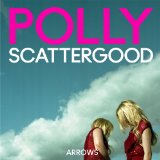 The phrase ‘an acquired taste’ could have been made for Polly Scattergood. She has a little girl lost voice and a tendency to cast herself as a needy victim to such an extent that the preference may be to send her to a good psychoanalyst than indulge in her recorded confessions. Her self-titled debut included a song called “I Hate The Way” in which Scattergood listed all of the things wrong with her and included the line ‘not all men are bad and I’m not like your dad and I’ll hold you even though you’re slightly mad’ sung from the perspective of her boyfriend. But she can have a way with a tune and her best tracks were perverse and genuinely dark, atmospheric electro pop songs. “Arrows” picks on up the synth-pop element of her first collection and broadens it with ballads as contrast; this is an album that is more slow than fast, are just as black-hearted and desperate.
The phrase ‘an acquired taste’ could have been made for Polly Scattergood. She has a little girl lost voice and a tendency to cast herself as a needy victim to such an extent that the preference may be to send her to a good psychoanalyst than indulge in her recorded confessions. Her self-titled debut included a song called “I Hate The Way” in which Scattergood listed all of the things wrong with her and included the line ‘not all men are bad and I’m not like your dad and I’ll hold you even though you’re slightly mad’ sung from the perspective of her boyfriend. But she can have a way with a tune and her best tracks were perverse and genuinely dark, atmospheric electro pop songs. “Arrows” picks on up the synth-pop element of her first collection and broadens it with ballads as contrast; this is an album that is more slow than fast, are just as black-hearted and desperate.
“Wanderlust” has a Numanesque overarching synth and sounds like Goldfrapp at their squelchiest. It’s nice but derivative and the silky “Disco Damaged Kid” is one of the many songs here that builds into something very different from its first couple of minutes but fails to live up to the vivid imagery suggested in its title. “Falling” has a rougher New Order indie pop sound and “Machines” is a standout, a tender electronic ballad which builds to a convincing enough passionate climax. “Subsequently Lost” is probably the pop standout, a PSB type production, tight with an ‘I’ve subsequently lost my mind luv, apparently I’m going nowhere’ chorus which very much sums up Scattergood’s opinion of herself.
The album’s final track “I’ve Got A Heart” is appropriately heart-breaking; piano and synth chords, beautifully spaced out moments and also the confessional ‘the doctor gave me pills to take, to stop me feeling quite so awake’ line accompanied by strings which help play out the tracks final two minutes. If you don’t like this track then it’s unlikely that Polly Scattergood will be for you. Alternatively the piano led ballad “Miss You” crams in all of her less sympathetic aspects, lyrically and also in respect to performance. It’s whimsical and self-pitying with juvenile lyrics referring to bedroom floors and chimneypot-lined skies.
“Arrows” is an album that sees Polly Scattergood lose some of the things that made her debut oddly compelling. She is clearly attracted to melancholy and that dark disco aesthetic that’s loved by many similar artists but here she is both more diluted and obvious than before. The thing that marked her out as being different, her own relentless self-involvement and a singing style which manages to be downtrodden and girly, are still here but the songs let her down more often than not. The surreal flourishes of songs like “Nitrogen Pink” and “The Bunny Club” from her debut have been replaced by more straightforward song writing and themes and where Scattergood was very good at narrating these kinds of escapist fantasies she is less effective with these kitchen sink type scenarios. There is a place in the electro pop world for Polly Scattergood I’m sure but she many have to go back to her initial influences and eccentricities to push her way back through the very crowded door.
 London-based duo and married couple Summer Camp’s 2011 “Welcome To Condale” debut was steeped in nostalgia and tomfoolery. A whole visual scrapbook was created to support the fictional town and characters of Condale with Jeremy Warmsley and Elizabeth Sankley referencing American pop culture with a specific decade, decided by them, that began in 1974. Musically it was enigmatic British indie pop circa 1988 but with built-in, up to the minute electronic dance flourishes occasionally bursting through. It was flawed but fascinating in equal proportions. Any modern trends sonic or otherwise have all but disappeared on this self-titled follow up and a more wistful and warm sound, still in love with a past, has taken its place. It’s the same band but in softer focus.
London-based duo and married couple Summer Camp’s 2011 “Welcome To Condale” debut was steeped in nostalgia and tomfoolery. A whole visual scrapbook was created to support the fictional town and characters of Condale with Jeremy Warmsley and Elizabeth Sankley referencing American pop culture with a specific decade, decided by them, that began in 1974. Musically it was enigmatic British indie pop circa 1988 but with built-in, up to the minute electronic dance flourishes occasionally bursting through. It was flawed but fascinating in equal proportions. Any modern trends sonic or otherwise have all but disappeared on this self-titled follow up and a more wistful and warm sound, still in love with a past, has taken its place. It’s the same band but in softer focus.
Lead single “Fresh” is a very old fashioned, massive string ‘old Hollywood’ sample on a loop. A retro dancer which brings to mind Spiller’s “Groovejet (If This Ain’t Love)” if it had been recorded 5 years earlier than its 2000 release. It’s very ‘musical’ and stands out because it’s so immediately familiar sounding and has one of the best melodies on the album. The first song “The End” is also a dance track of sorts; it certainly starts off with a substantial beat which gradually gets layered with various synth lines and trinkets, a clever middle eight and it’s indeed a strong opener. But Summer Camp’s real influences here are again more early 80’s jangly, electronic ‘kitchen sink’ melodic pop and not dance. Artists such as New Order and Altered Images can easily be heard and at worst the tweeness of Beautiful South comes to mind. The big beat wallop and rotating synth sample of “Crazy” is less Daft Punk and more early Fatboy Slim and it actually does sound dated, which I don’t think was ever the intention.
Stark and attention-seeking ballad “Fighters” certainly makes an impression. The lyrical metaphors are convincing (‘the first hit was hard and straight to the chin, a spray of blood caught his face as he leaned in, she staggered back in shock and surprise, shivered at the blow and tears welled in her eyes’) and Sankley’s plaintive vocals are beautifully recorded and right in your ear. But it also has the slight whiff of a school assembly musical which undermines the seriousness of the subject matter and takes away some of the much-needed weightiness; it sounds shallow when it should be sardonic. Flawed it may be but it is a definite glimpse into what they could be capable of and evidence of developing song writing skills. The sung -spoken “Phone Call” is a definite highlight and is reminiscent of late career Kirsty MacColl at her most melancholic and “Pink Summer” has pathos and an intimate and sad vocal delivery from Sankley. The swirling, dingy “I Got You” has a riff that sounds like Aneka’s 1981 novelty number one “Japanese Boy” but with little of that song’s energy or pop awareness, something the couple excelled at 2 years ago.
“Welcome to Condale” was uneven but had fantastic, eccentric peaks and whilst this is certainly a more cohesive collection of songs and themes, it fails to fully excite or divert from the whole pleasantness that prevails throughout. An enjoyable album certainly, but one where the duo’s intentions and a satisfying sense of a musical identity or presence is unclear. Influences may ring out loud and clear throughout and are fun to spot but Summer Camp’s own voice, and after much initial promise, is sadly less confident and idiosyncratic for the most part here.



